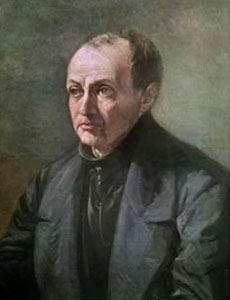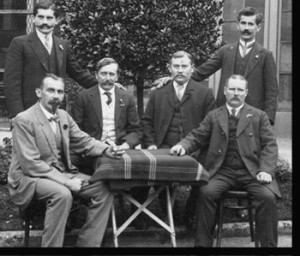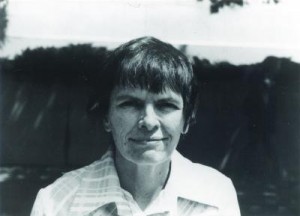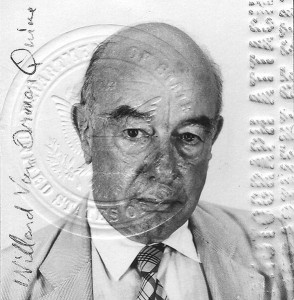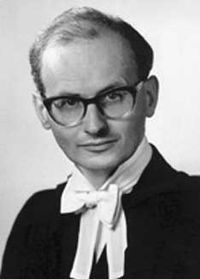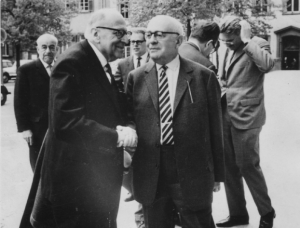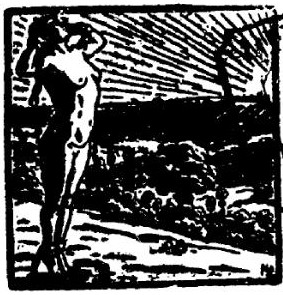As we saw in Part I, scientific progress is used by the capitalist class as a tool for the expulsion of labour from the workforce by way of technological improvements, which enables them to increase profits. This fact was immortalised in the conflict between labour and capital in the Luddite rebellions, when textile artisans destroyed machinery in protest of their expulsion from the labour force at the beginning of the 19th century.
It is no wonder then that much of the left, from the 19th and 20th century on, has had some antipathy towards technical progress. Marx, in contrast, made a point of demonstrating clearly the contradiction wherein technical improvements which could reduce human labour end up working counter to the interests of the labourer. The core difference of the Marxist viewpoint was in seeing the technical development as progressive and locating the difficulty instead in the social form: rather than attacking the production of labour saving machinery, it looked towards the root, the organisation of production and not toward the epiphenomena of the exile of labour from remuneration.
Marx was intent on having a scientific socialism1. One which was not merely moralistic, condemning injustices, but which tried to use theory and empiricism to discover how we might transform society. The aim of historical materialism was a scientific research programme which could find those dynamics in society which could enable us to produce an egalitarian society.
There is a theoretical trend within the left, however, which sees scientific progress as dangerous, not just in its use by the bourgeoisie, but in itself. Capitalism is expanded from being a mere mode of production into a totality which incorporates everything within itself. This strand of thought often locates an original sin whose genesis is in the rationalism of the Enlightenment.
This theoretical arc exists also within Marxism with some of its main exponents being Korsch, members of the Frankfurt school, including Horkheimer and Adorno, many of those involved in critical theory in the 1970s and most recently by Heinrich, who has described himself as belonging to this tradition2.
A Brief History of The Philosophy of Science
In broad outline, science is a process of modelling from observations. Ideally, these models are then tested themselves by making predictions of further observations. The first stage can be thought of as hypotheses formation, and the second as testing of hypotheses. While there is a fair amount of contention about the extent to which various more specific approaches are better or worse in various regimes, viewing theory production as modelling and empiricism as reviewing models with new observations can broadly be said to define science as a practice. Francis Bacon was one of the first to articulate how a unity of theory and praxis might form an altogether more effective methodology for study:
Those who have treated of the sciences have been either empirics or dogmatic. The former like ants only heap up and use their store, the latter like spiders spin out their own webs. The bee, a mean between both, extracts matter from the flowers of the garden and the field, but works and fashions it by its own efforts. The true labour of philosophy resembles hers, for it neither relies entirely nor principally on the powers of the mind, nor yet lays up in the memory the matter afforded by the experiments of natural history and mechanics in its raw state, but changes and works it in the understanding. We have good reason, therefore, to derive hope from a closer and purer alliance of these faculties (the experimental and rational) than has yet been attempted.
This basic schema was taken up and systematised by Auguste Comte in the early 19th century. He argued that positive verification of hypotheses was not just a good idea, but the only route to scientific knowledge. The statement was in marked contrast to the divine inspiration of the religious era, but it was also quite progressive even at the time — essentially rubbishing the deist scientific confusion which was prevalent from Newton until the early 20th century.
Comte’s investigations into the study of phenomena were actually quite sophisticated and modern. Contrary to many modern accounts of positivism Comte’s philosophy was not at all “Platonic”. His philosophy did not make statements about the universe underlying phenomena, instead it held that the underlying universe was not explorable, and the actual subject of science was the systematisation of phenomena as apparent in sense perception. His philosophy was summed up by John Stewart Mill thusly:
We have no knowledge of anything but Phænomena; and our knowledge of phænomena is relative, not absolute. We know not the essence, nor the real mode of production, of any fact, but only its relations to other facts in the way of succession or of similitude. These relations are constant; that is, always the same in the same circumstances. The constant resemblances which link phænomena together, and the constant sequences which unite them as antecedent and consequent, are termed their laws. The laws of phænomena are all we know respecting them. Their essential nature, and their ultimate causes, either efficient or final, are unknown and inscrutable to us.
The methodology of describing some definite relations which could then be tested as being adequate explanations of phenomena is sometimes titled verificationism. This idea of verificationism found new inspiration with the Logical Positivists of the Vienna School in the early 20th century. This group, many of whom were socialists, spearheaded a verificationist and scientific approach in direct reaction to the regressive romantic influences becoming popular in Austria and Germany, which are typified by the ideas advanced by Rudolph Steiner3. The ideas which the logical positivists set themselves up in opposition to included pseudo-scientific racism, unverifiable claims about farming techniques and radical but unsupported claims about education methods (such as never teaching reading prior to a child getting their adult eye-teeth). These ideas all shared a common core: that there was an gnostic, or inspirational route to knowledge that did not require verification.
There are certain problems, however, with Logical Positivism, and Comte’s positivism before it which originated not from romanticism, but from rationalist philosophers themselves. The most well known objections have been given by Popper, Quine, Kuhn, and Feyerabend. Most modern objections are some mixture of the arguments given by these philosophers, with Feyerabend’s post-modernist take being quite a common criticism on the political left.
Popper’s objection to the logical positivists was on the basis of their verificationism. He insisted that it was not possible to show conclusively that some scientific theory was verified. The idea of producing theories from induction, that is, the collection of positive observations from which we construct a generalisation that can explain them, was for Popper, insufficient to represent a demarcation between science and non-science. Instead, a theory must posit facts which can be demonstrated to be incorrect. That is, a theory must be falsifiable. The great physicist Richard Feynman was later to famously label theories which were not falsifiable: “not even wrong”.
Quine further took up the problem of deciding between what is model and what is observation, demonstrating quite persuasively that there can be no firm boundary in practice4. This is in contrast to the Logical Positivists which had come to believe that a uniform logical model could be produced for all of science that would provide positive verifiable facts which would then give us an ever increasing codification of science.
Further, he attacks the idea of radical reductionism which is the notion that all scientific statements could be codified into a logical theory in which each sub-statement could be independently verifiable. This feature would also work in the other direction, allowing a total universality which would be the conjunction of all analytic statements which had been verified as consistent with observation. This universalism was not a mere strawman, and was posited by Neurath, probably in the euphoria of the light cast by Hilbert’s programme, which was itself later to crumble under the objections of Gödel5.
Kuhn attacked positivism from a different direction. He assessed of the history of science and noted that periodically whole areas of science would be overturned by new theories6, e.g. the Ptolemaic conception of the earth centred cosmos was replaced by a Copernican model in which the Earth revolved around the Sun. This revolutionary overturning of prior theories demonstrated a far greater relativity to the status of scientific claims. What the positivists saw as a immutable logical truths suddenly became contingent and historical.
Finally, the most modern of the critiques of positivism comes from Feyerabend who proposed a theory of methodological anarchism7. His contention was that there was no methodology of science and that even further, the demarcation problem was completely irresolvable. The theory can be taken to be a post-modern critique of the sciences in that it moves even further from Kuhn’s historical contingency to an almost absolute contingency. His main ammunition used in advancing his thesis is coupling the historical contingency of theory with numerous examples of science adopting facts from outside of science. Science has allowed itself to accept information about chemistry coming from the occult alchemical practitioners of the middle ages. Pharmacology has used the various folk herbal remedies to find numerous medicines.
Feyerabend however, goes further to state that science is essentially on par with other ideological edifices such as religion. That, in fact, it is simply a methodology to reinforce structures of power and influence. Since there is no actual methodology and science can content itself with facts from arbitrary origins, its claim to special status dissolves, a position pithly summed up in his aphorism: “Prayer may not be very efficient when compared to celestial mechanics, but it surely holds its own vis-à-vis some parts of economics.”
Incorporating the Critique
So how does positivism stand up against these various claims? Quine’s contention that a sharp separation between model and measurement and that aggregation and disaggregation of logical statements cannot be accommodated is effectively impossible for logical positivism to defend itself against. As such any theory of science which hopes to ascribe a methodology to science will have to incorporate his critique.
Popper’s approach of attempting to find a demarcation line between science and pseduo-science, however, probably does not go far enough. With the introduction of probabilistic claims in the sciences, falsifiability must be weakened. Further, the utility of a theory in a regime is not necessarily diminished when it is found to be only contingently falsifiable. More damagingly, Popper’s falsificationism doesn’t tell us anything about the level of confidence we should have in a theory. Should we treat all theories as equally true regardless of the regime in which they have been tested? Should we see the likely existence of gravity tomorrow as on par with dark matter? The notions cannot reflect real scientific practice as they are divorced from the level of pragmatism necessary.
Kuhn’s theory, in its core, notices a real problem with the analytic universality promoted by the logical positivists. The understanding that new facts which contradict a given theory can accumulate and lead to crisis has ample historical evidence. However, the insistence on viewing scientific revolutions as establishing monolithic and hegemonic regimes which shatter the prior order (an order which becomes incommensurate) is completely impossible to resolve with the actual historical process of science.
As a case in point, practitioners of physics will regularly use theories of Quantum Mechanics which make reference to classical (non quantised) potentials or mix with special relativistic effects. Physicists can at the same time accept General relativity, use special relativity and all to make quantum predictions! This pragmatic pluralism simply cannot be reconciled with Kuhn’s vastly oversimplified vision. All of the paradigms from Newton forward are still in effect despite the fact of the internal scientific revolutions.
Scientific revolutions do not throw out the whole of prior observational theories at all. Instead they build on them in a patch work. In regions in which a new theory is more accurate or more easily used it will continue to be employed. Hence we still use Newtonian laws of motion when calculating the physics of artillery. Even when theories are completely replaced, it is best not to understand the process as one of incommensurate paradigms, as Kuhn would have us, but rather as a process of honing accuracy. An excellent essay on the way in which theories become honed is given by Asimov in The Relativity of Wrong8.
Feyeraband’s treatise, unlike those previously discussed, does not give us any useful critique of positivism. The core notion of the historical contingency of science is treated above, and is really simply borrowed from Kuhn. His other important claim is that science does not require a methodology to produce facts. Feyerabend neatly ignores that science is entirely agnostic as to how theories are produced. The origin of a hypothesis or fact is utterly irrelevant. It is a form of mysticism to attribute some importance to origin. The important demarcating factor of science is how we come to accept a theory or not — and this is where empiricism gives us a fundamentally more useful and pragmatic way to evaluate knowledge. Neither is the openness of science to the introduction of arbitrary hypotheses at all a novel innovation of Feyerabend. Einstein, for instance, stated:
Physics is a developing logical system of thinking whose foundations cannot be obtained by extraction from past experience according to some inductive methods, but come only by free fantasy.
The supposed anarchy of methodology tells us nothing about how we might decide that a given medicine really works, or whether a given chemical reaction is merely occult superstition or a potentially useful industrial approach.
Is there a way that we can move beyond positivism while incorporating the useful aspects of Quine, Popper, and Kuhn’s arguments without dissolving into the post-modern morass of Feyerabend’s methodological anarchism?
Lakatos, a student of both Lukaçs and Popper, brought a very coherent theory of science forward which helps to deal with all of these concerns. In fact, the label for Feyerabend’s anarchism was a pejorative originating from Lakatos.
Lakatos posited the notion of a research programme. Science was, in practice, not producing neat universalist theories but had various different theoretical orbits which scientists socially contributed to. These programmes did not necessarily produce tight analytical statements (though they sometimes did), but were often theories with a fuzzy separation of model from observation allowing multiple views which were tested variously by practitioners. The montage of models present in a programme, which can be variously seen as either composable, or found not to be by pragmatic. Selectionist development helps to distinguish it from the logical positivist reductionism which Quine attacked.
Lakatos gives an account of the demarcation problem between science and pseudo-science. Instead of positing a hard demarcation via verificationism or falsificationism, each programme contributes a core theory which would comes under scrutiny by practitioners. The quality of a programme could be judged by its capacity to contribute new scientific “facts” which would be verified by observation. Instead of throwing out a theory when contrary knowledge becomes available the theory is patched to allow the incorporation of this new knowledge. When a theory is mostly patches, or is unable to contribute new facts (all new observations must be patches to the theory), then the programme is degenerate. A pure pseudo-science is one that is essentially degenerate from conception.
This sophisticated account of scientific methodology is still closer to a revised Comtean positivism than to methodological anarchism, yet it handily accommodates the critiques. The approach of the scientific programme, with its revisions and caveats is recognised as essentially the only way in which we can reasonably cope in a collective and shared way with observation and the social construction of theory.
In modern practice, these scientific programmes are advanced in scholarly journals. Various journals compete for recognition based on the quality of the research which they publish with authors jockeying to have their views seen as of the highest quality, while a fair amount of effort goes into the review of prior research, as being able to demonstrate contradictions in a theory on empirical grounds is as likely to get one published as presenting a new theory.
Science is a social system of collaboration and antagonism. It incorporates various different programmes and various different approaches of investigation. It makes use of multiple experiments initiated from multiple directions. It is a collective and social effort for the establishment of inter-subjective models of the universe which can be shown to have utility in prediction. The process, being a social one, is messy and recalls Kant’s aphorism “Out of the crooked timber of humanity no straight thing was ever made”. There are social pressures to conform. There are cabals which weed out contradictory opinions, there are funding cycles which can entrench conservatism or even contribute to fraud (something which increases notably with the material pressures to do so, as in pharmaceutical research). Generally, however, over the course of time, the weaker theories fall and the strong theories live on.
It is important to understand that our incomplete knowledge of the underlying dynamics that constitute reality is a permanent condition. It cannot be rectified by any amount of observation. Inspiration, as Einstein mentioned in his notion of the need for free imagination, of a non-inductive type must be utilised to find the appropriate dynamics in this case. And yet, the question of which is the appropriate dynamics can only be decided by an omnipotence that we cannot possess. This is why the reality which is reflected in our models must be understood as contingent.
A Lurch into Romanticism: the objections of the Frankfurt School
Can there be other sources of knowledge which are not scientific? As Feyeraband and Einstein noted, propositions can come from any old source whatsoever; it is not the source which is at issue. It is our judgement of the quality of these propositions which can not be divorced from the empirical. This testing of the model is the origin of the deep separation between the religious mode of thought and the scientific. There simply are no other routes to the evaluation of the quality of a theory than empiricism.
Amongst the Korschians, those of the Frankfurt school, various Heinrichians and many others coming from sociology or left political theory it has has become fashionable to attack the concept of measurement itself. The sentiment is expressed quite forcefully in this article: Old Age Marxism which takes up the slogan “down with measurement”.
Similarly the idea of codification of ideas in analytic terms and the aims for such things as efficiency and coherence have been labelled the cause of the great modern calamities. Take for instance the charge that “The enlightenment ended in the ovens of Auschwitz” a theme discussed here: If it wasn’t for that pesky enlightenment, an idea whose origin can be traced to “Dialectic of enlightenment”9.
In Horkheimer’s early writing10 we find him beginning to express a post-modernist understanding of science:
Conceptual realism, that is, the doctrine of the reality of the general concepts themselves is just as incorrect as its nominalist opposite, according to which general concepts are mere names. Or, rather, both doctrines are correct.
Rather than articulate the difficulties with, or a substantial critique of empiricism, Horkheimer wades knee deep into total equivocation. A thing is both true and not true and the opposite of both. Even Hegel would have right to be impressed by these level of obscurantism.
In the “Dialectic of enlightenment”, Horkheimer and Adorno move forward with their argument locating the great atrocities of the modern world directly with the hubris of enlightenment thought, measurement, the idea of unbounded progress and the scientific approach to the construction of society:
What human beings seek to learn from nature is how to use it to dominate wholly both it and human beings. Nothing else counts. Ruthless toward itself, the Enlightenment has eradicated the last remnant of its own self-awareness. Only thought which does violence to itself is hard enough to shatter myths. Faced by the present triumph of the factual mentality, Bacon’s nominalist credo would have smacked of metaphysics and would have been convicted of the same vanity for which he criticized scholasticism. Power and knowledge are synonymous.
This Manichean proposal locates power (and by implication, evil) in the extension of human knowledge and the annihilation of mysticism, myth and romantic ignorance. The ineluctable consequence of science is our own moral degeneration. Not only that, they charge that science becomes a metaphysics, if not a religion, by the same mode of criticism by which it charges its mystical opponents. Of course, no reference to how mysticism has provided a better climate for humans is demonstrated, and surely none is needed, for the Frankfurt school does not need proof! Such certainty of knowledge would simply lead to power anyhow, and so we may as well drift into poetic critique.
Of course it has been pointed out by Staudenmeier11 and Goodrick-Clarke12 in some detail the extent to which the Nazis were beholden to mystical, occult and romantic influences and that they were permeated with pseudo-scientific theories. Further, the Nazis did not hold any of the universalist values of equality, liberty or solidarity. The conflation of the radical modernity of the Nazis with enlightenment ideas is a very confused fallacy of association — but one that we should note is very common on the political right13.
Further, the Frankfurters’ objection to humanity’s growing ability to dominate and control nature stands in sharp contrast to the conventional wisdom of the earlier generations of Marxists. Trotsky, for example, could, as early as 1926, exult in the the potential for nuclear power:
The phenomena of radioactivity are leading us to the problem of releasing intra-atomic energy. The atom contains within itself a mighty hidden energy, and the greatest task of physics consists in pumping out this energy, pulling out the cork so that this hidden energy may burst forth in a fountain. Then the possibility will be opened up of replacing coal and oil by atomic energy, which will also become the basic motive power. This is not at all a hopeless task. And what prospects it opens before us! This alone gives us the right to declare that scientific and technical thought is approaching a great turning-point, that the revolutionary epoch in the development of human society will be accompanied by a revolutionary epoch in the sphere of the cognition of matter and the mastering of it … Unbounded technical possibilities will open out before liberated mankind.
It is useful to understand the philosophical and political trajectory by which the Frankfurt school came to be in the first place. In the wake of the split in Social Democracy, there was a great deal of confusion. It is without a doubt true that many adherents of Social Democracy had witnessed their uninterrupted rise to prominence and coupled it with various ideas from Marx that the proletariat would be the grave digger of the bourgeoisie, to construct a fatalist determinism which guaranteed socialism, and for many, in the immediate future. As with the early Christians, the literalist who saw a kingdom of heaven being brought forth immediately was to be disappointed. In the wake of this disappointment, the centrist Marxists laid blame on an overly simplistic and impatient view of the process of socialisation. However, with the Bolshevik revolution securing power, the centre began to recede in popularity.
Felix Weil, a wealthy student of Korsch’s, took it upon himself to create a new institute, the Institute for Social Research in Frankfurt which was founded in 1923. The institute initially employed Carl Grünberg, an Austro-Marxist, a second choice and not at all ideal in Weil’s opinion. Weil, himself being bourgeois, favoured a Korsch like analysis, but preferred one which was not revolutionary. After Grünberg’s health deteriorated, he was replaced with Horkheimer who took on an ambitious project of creating a fusion between the pseudo-science of Freud fused with verbiage from Marxism. Because of his antipathy to science, it would be a Marxism chosen largely from Marx’s earlier works which dealt less with historical materialism or his critique of political economy.
Kautsky describes this selection of Marx’s earlier works in a book review of Korsch14. The Marxian centre was promoting an explicitly materialist and scientific approach to the evaluation of social theory. Rather than a “mechanical determinism” it was promoting a research programme which would study the dynamics of society and test hypotheses against reality.
What Source Knowledge
The question is left entirely implicit in the Korschian/Frankfurt type critiques of what we should use in the place of empiricism. How should we proceed without measurement? How will we evaluate whether a theory is good? Is it acceptable to not worry about efficiency?
The question is left implicit because they have no alternative to offer. Romanticism replaces evaluation, and mysticism replaces measurement. The consequences of such an approach to society would be a holocaust the likes of which has never been seen before. It is strictly impossible for us to achieve the level of carrying capacity from agriculture, sanitation, water and food distribution, transport or the communications networks that are required without very close attention to measurement and efficiency. Further, understanding what social forms prove most useful would be impossible, as no comparisons can be made. It is not even clear how the horror of enlightenment can be asserted with the expansive equivocation which they present. A prohibition of measurement, systematisation and indeed science is only consistent with a primitivist genocide.
Of course, surely some will claim that the charge “down with measurement” is being used as a strawman and that we should take it to mean something short of all measurement. Perhaps down with measuring certain types of things. Certainly there may be elements of our lives in which measurement is inconsistent with some goals such as liberty. But then we should not be entreated to reject science or measurement, but to embark on a different scientific programme which is consistent with these values.
Distortions and Antagonisms
Cannot the crudest superstition, the most miserable perversion of the truth about world, society, justice, religion, and history grip whole peoples and prove most excellent for its author and his clique? In contrast, does the defeat of the forces of freedom signify the disproof of their theory?
– Horkheimer
Science is a social phenomena, and as such it is subject to all of the familiar features of human life: accident, malfeasance, jealousy, collusion, self-delusion and any number of other problems. Any study of the practice of science will find numerous forgeries in attempts to produce surprising scientific evidence. In addition, science is existing in the context of two major influences, the state and capital, which push it to investigate only a limited scope.
Sometimes whole states are mobilised in support or opposition to theories. The case of epigenetics is instructive. Famously, Lysenko gained official support for his Lamarkian theories of vernalisation, leading to the state suppression of counter evidence and scientists who challenged the theory. In the West, the association of epigenetics with Lysenko became so dangerous that people avoided epigenetic research for half a century. It’s probably not an accident that the high quality research on epigenetics in the intervening period was carried out by Conrad Waddington, himself a leftwing sympathiser of Marxism. Now that the importance of Lysenko has faded, epigenetics is coming back in a big way, and yet one still finds his name mentioned in epigenetic papers after 2000, with proponents of epigenetics still needing to distance themselves from his work.
Further, the distance from the propensity to destabilise ruling class power has a huge impact on the likelihood of science to take proper root. Economics is an excellent case in point. Lakatos charged that much of macro-economics was simply psuedo-science and it is really hard to disagree with the charge. Few economists even hope for weakly predictive theories and for the most point content themselves with totally untestable propositions and models which are not even wrong. Some core examples of these include indifference curves driving the demand curve in aggregate and notions of Walrasian equilibrium. Keen15 has a more complete analysis of the pseudo-scientific theories of neo-classical theory and Yanis Varoufakis is currently working on one.
Yet these distortions are just that, distortions. They can be shown to be distorted through the scientific method itself, given sufficient opportunity for investigation. Science has to be marshalled to clarify and remove these imperfections. This is in direct contrast to religion, which because of its apriorism is incapable of the elimination of ideas outside of either use of raw cultural power or accidental promulgation.
The sociological critique of science falls to the same criticism that disposes of Feyerabend’s methodological anarchism. If scientific practice was entirely reducible to nothing but sociological inputs (political pressure, requirements of funders, gender or ethnic bias etc), then there would be good reason to allot science a lot less prestige than it enjoys. But, in fact, these factors are not by any means the whole of the story.
For, unless we are to succumb to solipsism, then a world exists outside of our heads, one that cannot be arbitrarily altered. The investigation and understanding of this world is the primary task of science. That the tools that can be utilized have drawbacks and contingent factors that often influence the investigations does not render them useless. Rather than a fatally flawed practice, they constitute a starting point, and which are, when viewed in the context of being an international collaboration over a period of centuries, capable of being controlled for.
Not only are these inputs not inherently counter-productive, they may well be a necessary component to getting science done at all, at least in specific contexts. This by no means makes all the sociological criticisms irrelevant. But to the extent they are insightful, they comprise improvements rather than refutations of the Enlightenment project.
The growth of a Frankfurtian worldview, with its disdain for the Enlightenment, and its mutation into post-modernism with its undermining of the superiority of science as a means of attaining knowledge, may have originated from progressive intentions, but in practice it undermines attempts to construct a political alternative. Science ultimately has a way of filtering out the biases inculcated by funders, social pressures, cultural influences. Sometimes the filtering takes longer than we would like, as with the lingering idiocy of American psychologists and their proclivity for measuring the IQs of African-Americans. But out it comes and it is the scientific method itself that shows the way. Racism and sexism do not enrapture critical minds to the same extent as they did previously, as justifying scientifically the inferiority of Africans or women (or whoever) is an onerous task, not helped by the unfavourable disposition of reality.
If there were no modes of socially accepted rationality then we would have no intellectual basis for disregarding the mutterings of racists, nor indeed of repudiating any social or political choices. We would be condemned to a world where reality is what the powerful deem it to be, as smugly articulated by George Bush’s organiser:
That’s not the way the world really works anymore… We’re an empire now, and when we act, we create our own reality. And while you’re studying that reality—judiciously, as you will—we’ll act again, creating other new realities, which you can study too, and that’s how things will sort out. 16
Only a society so immune from threats could conceive of such ultra-postmodernism. When a society is under serious pressure, either externally through competition for markets, military conflicts, or simply from a cultural colonisation that threatens the status of the existing elites, postmodernism will not have much resonance. It is when these pressures are more or less absent that the intelligentsia can indulge themselves. More importantly, their undermining of rationality, while mildly corrosive of the ideologies that are important to the elites, are highly damaging to Enlightenment based oppositions, most critically orthodox Marxism.
Enlightenment rationality in general and scientific practice in particular is the antidote to otherwise untrammelled ability of the powerful to impose the reality of their choosing on the disorganised masses. But not just any old science, but one which accepts that we are condemned to a provisional level of knowledge and that we are reliant on imperfect researchers and societies to organise research programmes on an ever-improving basis. But which scientific programmes should we undertake? If our aims are not merely the pursuit of profit or military superiority then what are they? What does it mean to be pro-human or pro-social? Should we be trying to maximise lifespan or quality of life in a shorter number of years? How much should programmes be decided by scientists and their interests, and how much by the general public?
All of these questions require us to define them and discuss them socially. Socialists have long taken the cue from the republican ethos: liberty, equality and solidarity, and extended it into an analysis of the materiality required for these virtues to exist (rather than the purely notional or legal). The full assessment of what our aims are, will be a political process which can not simply be answered by any particular scientific inquiry.
We see glimpses of this fact in the idea of the “tree of goals” adopted by TsEM-I for GOSPLAN (the government planning body) in the USSR. They adopted this strategy from the realisation that they had multiple goals which had to be balanced in trade-off, and which could not be reduced to a single value. Instead, the choice had to be a political fact17.
There will always be a need to improve the efficiency of production, but when we are untethered from the profit motive this efficiency can manifest quite differently. The efficiency of a work environment might mean not only the quantity of production and the demand in the market, but it could be the quality of work during production, the likelihood of death or injury and the efficiency in terms of externalities of production, such as CO2 or mercury, as well.
Whatever the social choices we make, the methodology of science need not change fundamentally. Science was driven forward as being necessary not just for warfare or the ephemeral interests of the nobility, but for the greater part of all commodity production. However, it is not itself intrinsically capitalist and until a superior way of gaining knowledge of the world presents itself, we would do well to stick with a winning formula. A transition to socialism will need to keep hold of the fact that the interpretation of reality requires a scientific orientation. We can’t hope to move forward by retreating to religious or even romantic modes of thought.
- We recognise only one single science, the science of history. You can view it from two sides, and divide it into the history of nature and the history of people… – Marx, The German Ideology ▲
- Heinrich, Michael, Introduction to the Three Volumes of Capital ▲
- Staudenmaier, Peter, Racial and Ethnic Evolution in Rudolph Steiner’s Anthroposophy,The Journal of Alternative and Emergent Religions Vol. 11, No. 3 (February 2008), pp. 4-36 ▲
- W. V. O Quine, Two Dogmas of Empiricism, 1961 ▲
- Dan E. Willard, Self-Verifying Axiom Systems, the Incompleteness Theorem and Related Reflection Principles, Journal of Symbolic Logic ▲
- Kuhn, Thomas, The Structure of Scientific Revolutions, University of Chicago Press, 1996 ▲
- Paul Feyerabend, Against Method, Verso Books, 1993 ▲
- Asimov, The Relativity of Wrong ▲
- Horkheimer, Max; Adorno, Theodor, Dialectic of Enlightenment ▲
- Horkheimer, Max, Between Philsophy and Social Science ▲
- Staudenmeier, Peter, Fascist Ecology: The Green Wing of the Nazi Party and its Historical Antecedents ▲
- Goodrick-Clarke, Nicholas. 1985. The Occult Roots of Nazism: The Ariosophists of Austria and Germany 1890–1935. Wellingborough, England: The Aquarian Press. ▲
- Jonah Goldberg, Liberal Fascism: The Secret History of the American Left, From Mussolini to the Politics of Change ▲
- Kautsky, Karl, A Destroyer of Vulgar Marxism ▲
- Keen, Steve, Debunking Economics: The Naked Emperor of the Social Sciences ▲
- Ron Suskind, https://en.wikipedia.org/wiki/Reality-based_community ▲
- Caves, Computers and Economic Planning: The Soviet Experience, 1980 ▲


